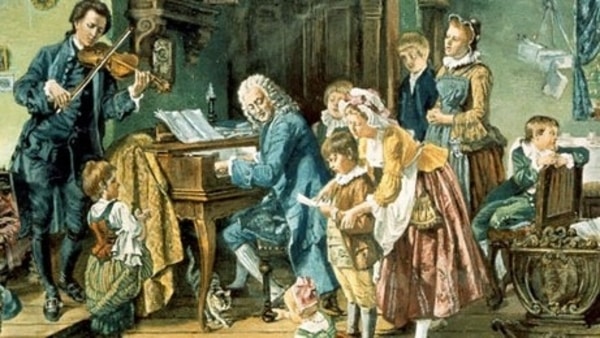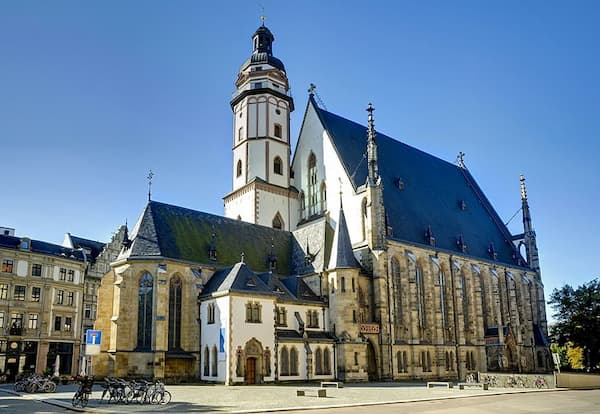We may reasonably call Johann Sebastian Bach a middle-of-the-road eighteenth-century father. He was not directly involved at all in the upbringing of his children but provided guidance by example. The Bach family arrived in Leipzig on 22 May 1723 and took up quarters in an apartment at the school of St. Thomas.

The Bach Family © Oxford Bach Soloists
Although contemporary newspaper reports suggested that the incoming Cantor’s apartments were newly renovated, the building dated from 1553 and was in deplorable condition. The same could be said of the school proper, where staff quarreled among themselves, and parents were unwilling to send their children to a school where illness was so prevalent. As an immediate result, only 54 of the possible 120 student places were filled. On the brighter side, from the window of his study on the first upper floor, Bach was able to look out over the town wall, with a magnificent view of the surrounding gardens, fields and meadows.
Johann Sebastian Bach: Mit Fried and Freud ich fahr dahin, BWV 125
There can be no doubt that their shared interest in music contributed to Johann Sebastian and Anna Magdalena’s happy marriage. Anna Magdalena continued to sing professionally after her marriage, and she organised regular musical evening featuring the entire family playing and singing together with friends. She also worked regularly, alongside the children, as a copyist for her husband’s work. Their help and participation were sorely needed, as the year 1724/5 was Bach’s most productive year for cantatas. Supplying the Leipzig churches with a steady stream of music, the chorale cantata represents Bach’s most important contribution to the history of the genre.

Church of St. Thomas
It is particularly striking that Bach established a broad framework in terms of both musical style and compositional technique. On 14 April 1725, the Bach family welcomed another son, Christian Gottlieb Bach, into the world. Sadly, as the probability of dying before the 5th birthday in the first half of the 18th century was close to 50%, Christian Gottlieb Bach became part of that horrendous statistic. He died on 21 September 1728 of unknown causes.
For more of the best in classical music, sign up for our E-Newsletter
